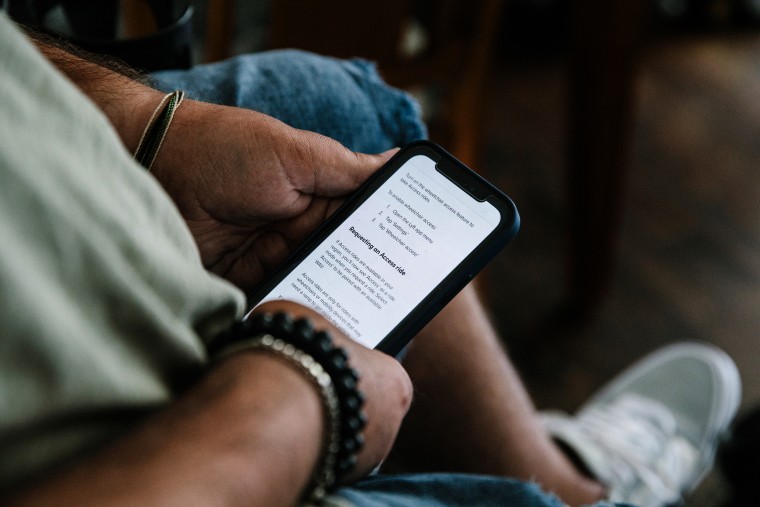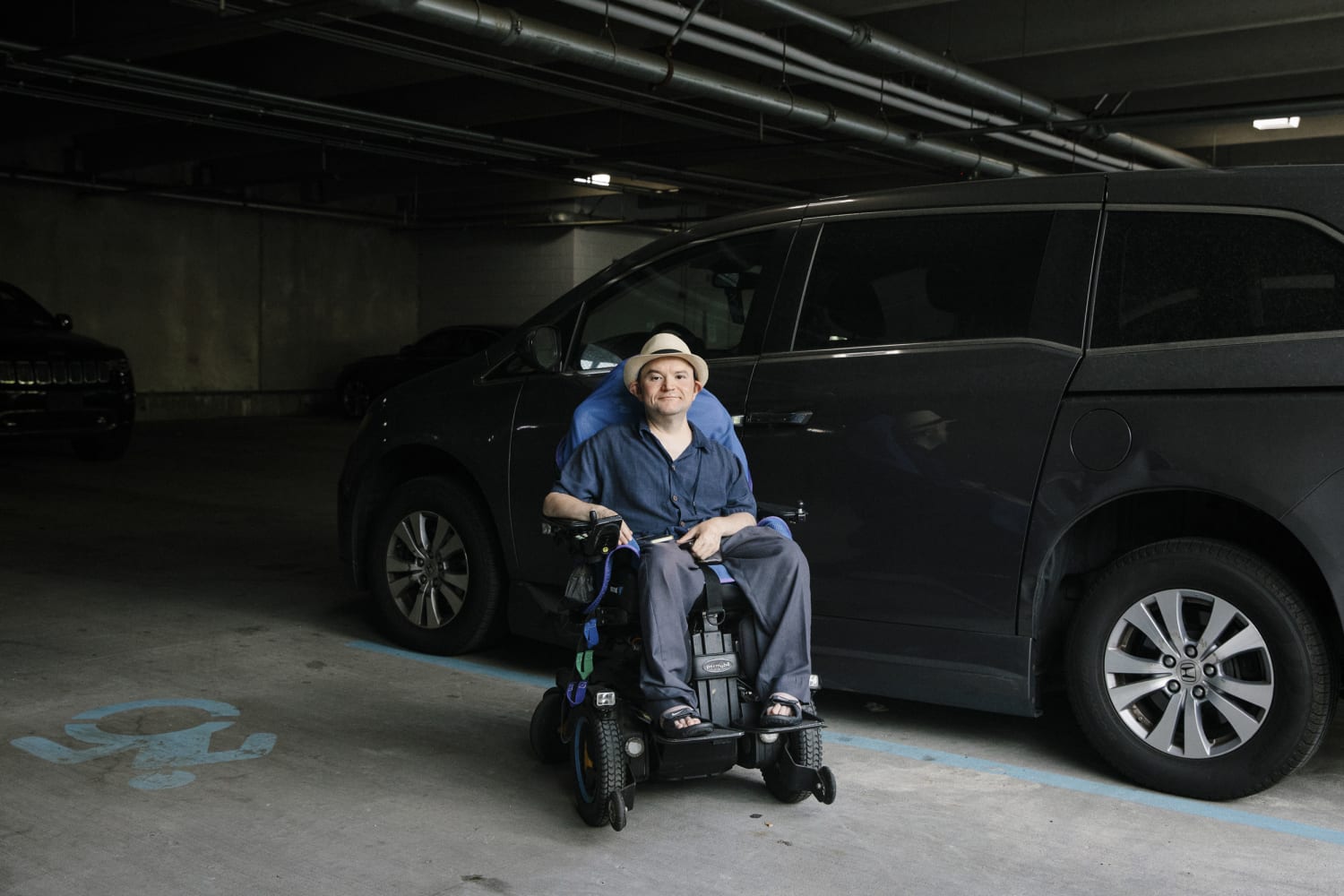Lyft’s website includes a section about resources for riders with disabilities, with the company noting that it is “passionate about creating a platform that everyone can use.” Riders with wheelchairs that fold can take any kind of Lyft ride, the website states. But it’s not so simple for riders with wheelchairs that don’t fold, like motorized ones.
“Lyft needs to provide wheelchair accessible service to everyone. To do that, all Lyft has to do is turn off the blocker — or toggle — that prevents people from identifying their vehicles as WAVs and prevents riders from requesting WAVs,” said Frei-Pearson, an attorney for Harriett Lowell, who filed the original class action suit against Lyft alongside disability rights group Westchester Disabled on the Move Inc (WDOMI). “Remove the toggle everywhere else and you’ll give a lot more WAV rides.”
Lyft has been embroiled in the class action suit over the matter since 2017, when Lowell and WDOMI sued the company for failing to accommodate people with wheelchairs that don’t fold. Now, in court filings obtained exclusively by NBC News, which will later be made public, Lyft is arguing that it is not subject to regulations in the Americans with Disabilities Act that would require it to ensure the availability of wheelchair accessible vehicles because it is a technology company, not a transportation business.
“Lyft is not a government institution. It is a private company that has no obligation to provide WAVs on its platform,” Lyft officials wrote in a private federal court filing obtained by NBC News. Lyft officials will appear in court over the suit on Aug. 29 in White Plains, New York.
According to court documents filed by Lyft and its website, the company offers WAV services through an “Access” ride option on the app in the nine cities that require the company to do so. In regions where this “Access” mode isn’t available, riders are directed to other transportation options, according to court documents. Lyft said in the filing that it can’t simply “turn on” “Access” mode to connect riders with WAV drivers in other areas because there aren’t enough of those vehicles.

A Lyft spokesperson told NBC News: “There is an extremely limited supply of these specially manufactured vehicles across the country, and even fewer among the population of rideshare drivers. Despite these obstacles, we’re constantly working to improve reliability of the service and find solutions to address supply challenges.” The company currently works with third-party providers to supply WAV vehicles and works to recruit drivers who already have WAVs, but company officials hold that these solutions aren’t feasible nationwide.
Additionally, in the response to the class action suit, filed on July 29, Lyft officials highlighted driver availability as another reason behind their inability to fulfill the WAV requests. They stated that areas with smaller populations, like suburbs, tend to have less drivers. Additionally, the high cost of wheelchair accessible vehicles (converting a van into a WAV could cost up to $30,000) and the “small” population of people in the U.S. who use nonfolding wheelchairs also contributed to the lack of WAV service. “Where the supply and demand for service is very low, the platform does not perform well and there is very low, or in some cases no, use,” Lyft officials said in court documents. The American Academy of Physical Medicine and Rehabilitation says roughly 5.5 million adults use a wheelchair for mobility — both foldable and nonfolding. However, a lawyer for the disability rights advocates said the number of drivers with WAVs isn’t as big an issue as Lyft claims.
“There are Lyft drivers who have wheelchair-accessible vehicles, but if you’re not in an access region where Lyft is forced by regulations to provide service, Lyft won’t even let you advertise you have WAVs,” Frei-Pearson told NBC News. In court documents filed earlier this year on behalf of the plaintiffs, disability rights advocates said that, since 2019, hundreds of Lyft drivers with WAVs have attempted to provide service in Westchester, only to have the company block riders from seeing that there are accessible vehicles in the area.
“We’re not asking Lyft to do anything very difficult, we’re asking them to stop discriminating. Very concretely, stop blocking wheelchair accessible service. Lyft allocates enough resources to hit the minimum targets, then it pulls back all resources,” Frei-Pearson said.
This isn’t the first legal dispute Lyft has seen over accessibility. Lyft, Uber and Via settled a suit against New York City in 2018 in which they opposed rules that would impose accessibility requirements on the ride-share companies. In the end, they agreed to provide wheelchair-accessible riders to passengers quicker. In 2020, Lyft settled a lawsuit brought by the Department of Justice that required the company to accommodate riders who use foldable wheelchairs and pay a fine to four people who accused the company of discrimination. Lyft did not admit any wrongdoing in the 2020 suit.
Although Uber offers additional ride options for people with nonfolding wheelchairs in some cities — like Chicago, New York City, Philadelphia and Washington, DC — in July a judge ruled against New Orleans residents in a suit that would have required Uber to provide nonfolding wheelchair-accessible service in the city. Uber also lobbied against an ordinance to require Uber to provide WAV service in New Orleans, according to WLBT.
Of the 13.4 million adult Americans living with travel-limiting disabilities, 3.6 million are unable to leave their homes due to their disability, and people with mobile disabilities are less likely to work than those without due to travel limitations, according to the National Aging and Disability Transportation Center. People with travel-limiting disabilities are also less likely to have their own vehicles or access to vehicles that meet their needs, the center reported.

Joshua Cooper, 28, lives in Little Falls, New Jersey, and has Type 2 spinal muscular atrophy, a genetic neuromuscular disorder that impacts motor skills. Cooper said he has unsuccessfully tried to use Lyft hundreds of times and Lyft’s “Access” feature only appears on the app for him in designated areas with registered WAV drivers. He said while the option would appear for him in New York City, less than an hour from his home, “Access” mode would not even appear in his New Jersey neighborhood — some 20 miles away. “It doesn’t come up as an option,” he said.
“I’m completely disabled, the only thing that’s not is my brain. I always have to rely on other individuals to drive me to drop mail off or pick up necessities at the grocery store, whereas everyone else in life can use Ubers and Lyfts. It has robbed the disabled community,” Cooper said. He said he has never been able to use Lyft.
“It literally just says ‘connecting to driver’ for several minutes. One time I sat there for 30 minutes. A lot of times it will just come up with ‘no drivers in the area.’”
Now, Lyft is planning to convince a White Plains judge that they are exempt from the ADA and, in court documents, cited Title III of the Civil Rights Act, which prohibits discrimination by public accommodations on the basis of a disability. Lyft argues in the filing that it is a private company, and not a “public accommodation.” But Laura Rothstein, a law professor who focuses on disability discrimination at University of Louisville, said Lyft officials may be misinterpreting the law.
Source: | This article originally belongs to Nbcnews.com








